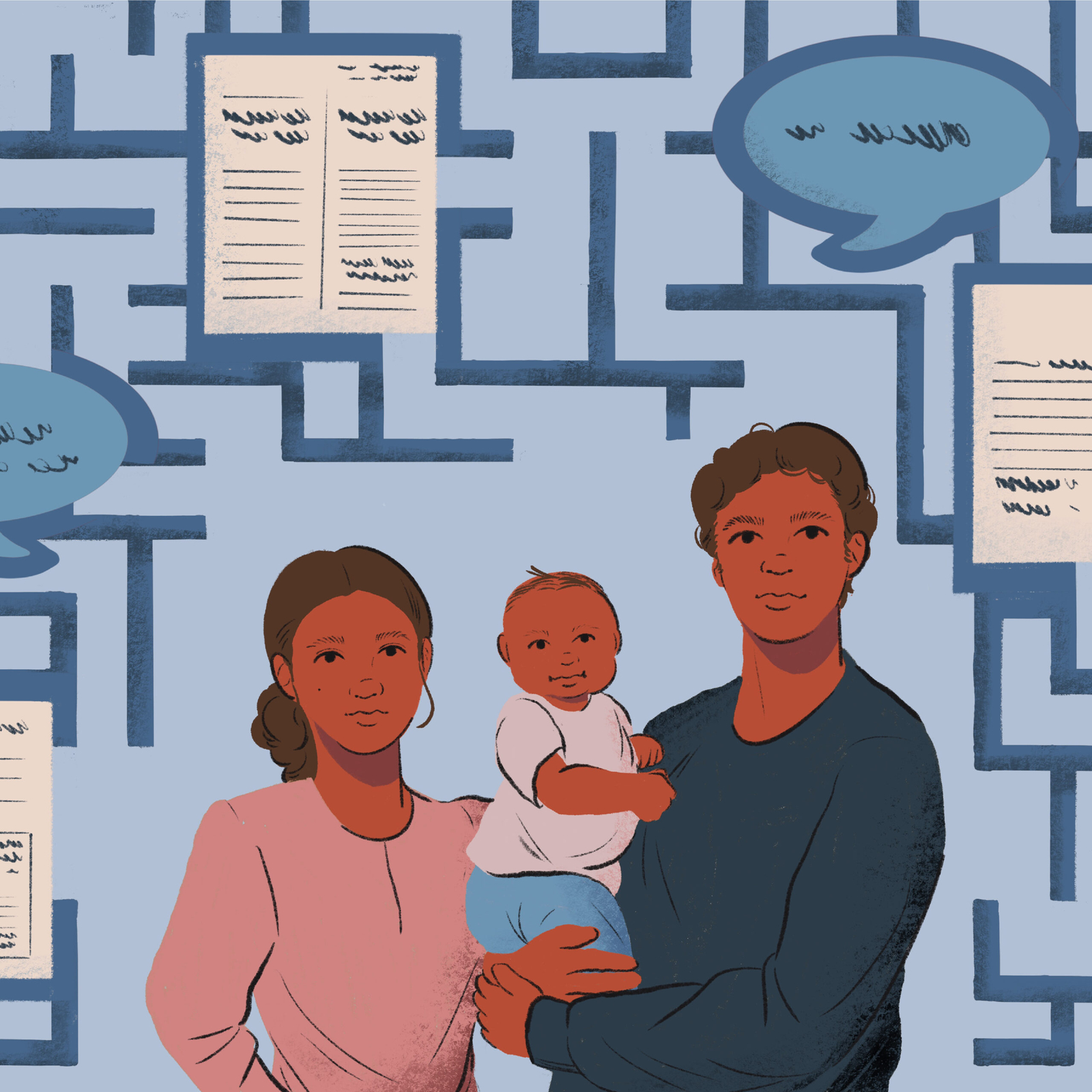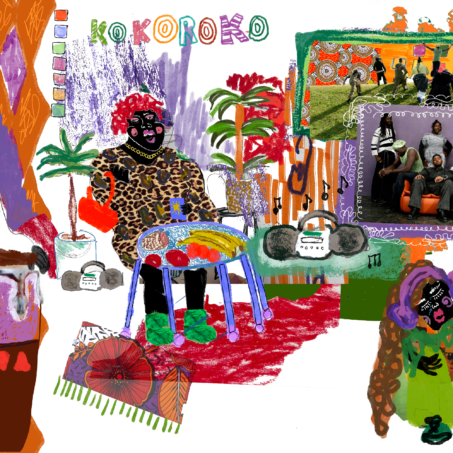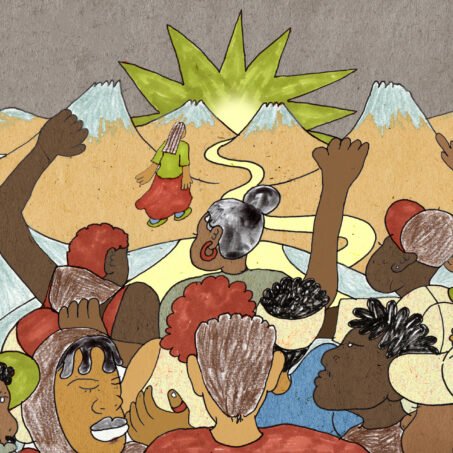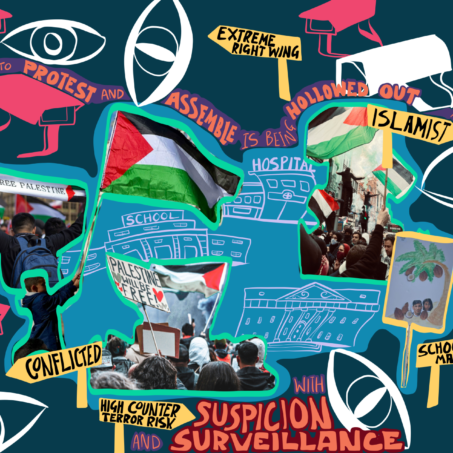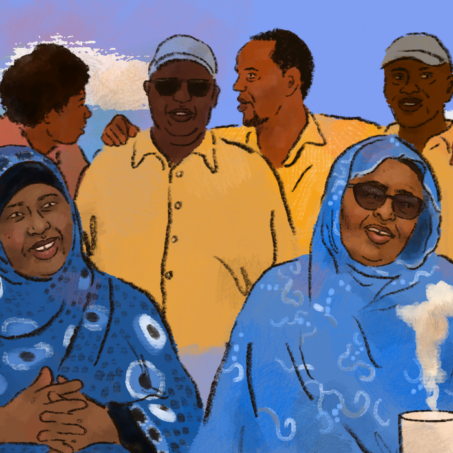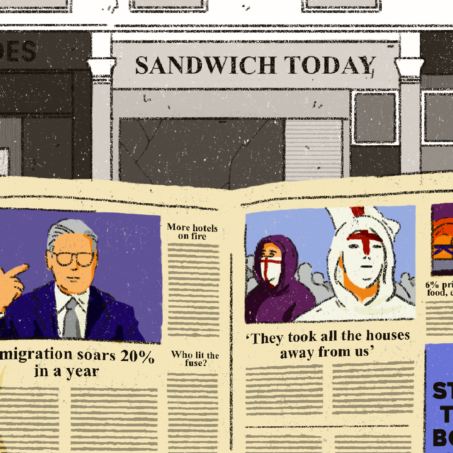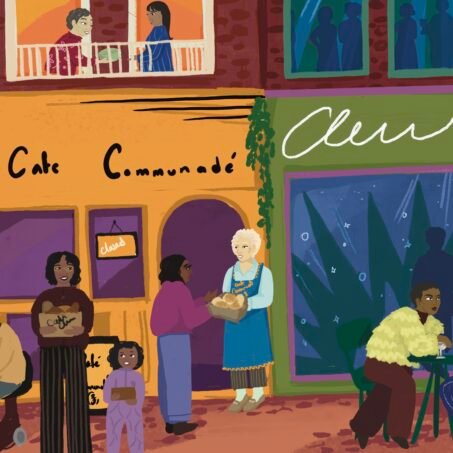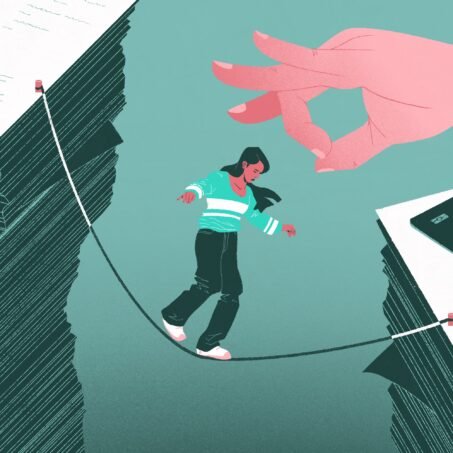In May, I sat in a venue in London, alongside organisers, lawyers and activists celebrating the 10 year anniversary of Right to Remain’s legal education toolkit, initially designed to support people resisting deportation.
The exhaustion was mutual amongst us, and it’s no surprise. Continuously fighting back against every half-baked ‘policy’ extension of the Hostile Environment has run us all ragged. An icebreaker helped us tally up the cumulative years of experience we each have within the migration sector – collectively, the final count surpasses 1200 years.
Eiri Ohtani, Right to Remain’s newly appointed director, sheds light on what the numbers really tell us: “we want our community to recognise and value the enormous amount of collective knowledge, wisdom and determination we already have within ourselves.”
Shifting beyond the conventional ‘service delivery’ model so prevalent in the immigration sector which concentrates knowledge and power amongst a qualified few, the Right to Remain toolkit empowers individuals to claim more agency in their fight for their right to remain by giving accessible explanations of the asylum process stages and tips on how to navigate through it successfully.
Intrigued by their approach, I sat down with Right to Remain’s director Eiri Ohtani, legal education officer Yumna Kamel, and former coordinator Lisa Matthews. We delve into the evolution of the toolkit over time, the transformative impact it has had, and what’s on the horizon for the future.
A project which began in the grassroots and stays in the grassroots
In their early days, most of Right to Remain’s focus was on supporting people fighting against their forced removal. Formerly known as the National Coalition of Anti-Deportation Campaigns, their legal education toolkit emerged to help democratise community knowledge, sharing decades of experience in the migration sector with the general public – so that each person who went up to bat against the system was not alone, but armed with confidence and knowledge as power.
But as the political tides shift and the legal landscape evolves, the Toolkit continues to transform. Anti-deportation campaigns and direct action attempts now face new restrictions and criminalisation, legal aid has considerably deteriorated over the years, and more pieces of legislation are being thrown at us to make a complex system even more difficult to decipher.
In response, the toolkit is helping to reshape a care ecosystem for migrants that gives them a sense of community, agency, and access to information that can help them navigate their case – regardless of whether they have financial means or social networks to access high quality legal aid.
For example, a These Walls Must Fall campaigner recently shared with Right to Remain that by attending online group meetings with other people seeking asylum, she was introduced to the toolkit and able to secure her right to remain in the UK.
“I met all the other people seeking asylum that had the same challenges as me,” Glory explained, “we shared our stories and from there, I gained confidence and understood how the asylum system worked.”
As well as empowering individuals directly, the toolkit has evolved to further bolster the grassroots organisations across the UK that are supporting refugees and people seeking asylum.
The Hummingbird Project’s Joshua Samuels shares his experience of using the toolkit, explaining how “one of the services that we provided was not necessarily [legal] advice, but one-to-one support to young refugees and asylum seekers.” Sometimes this looks like helping young refugees through means such as facilitating social activities, offering 1:1 support and language support sessions. “We often liaise with their solicitors on their asylum claims and help them to just think through the process”, Samuels adds.
By consciously remoulding and designing the toolkit over the years in response to the changing socio-political landscape, individuals are empowered to not just stand up, but stand together. The toolkit is not a static product to consume that delivers an individualised outcome. It is a dynamic community resource which aims to encourage a new way of organising in resistance to the Hostile Environment.
How we can build transformative Radical Solidarity
Developing this type of radical solidarity requires getting creative about how we can build ecosystems of care around immigrant communities, facing the harsh reality that the availability of legal aid within the asylum and immigration system will never be what it once was. This first of all calls for us to have a clear understanding of the differences between Legal Advice and Legal Support.
In simple terms, Legal Advice is specific, direct, and proposes a course of action to individuals based on application of legal rules and principles to their unique case. Currently, if you want to give legal advice in asylum or immigration cases, you have to be licensed by a relevant regulatory body (the Office of the Immigration Services Commission, for example). Although licensing exists for very good reason and assumption of knowledge can do more harm than good in such a complex legal space, the regulation of this space does restrict what most of the population can do to support migrants with their cases.
The role of Legal Support
But this does not mean that a struggling legal aid sector strips us of all agency. This is where Legal Support comes in. Even if you are not qualified to give legal advice, you can still share general legal information as long as it does not necessarily propose a cause of action (sharing the Right to Remain toolkit with someone you want to support is a good example of this…).
Other forms of legal support can look like…
- collecting and/or researching evidence on a country of origin or particular situation of the person you are supporting,
- asking contacts to ask an expert to write a report to support someone’s legal case,
- gathering useful letters for their case from school/social services/medical or mental health professionals,
- or even visiting them in detention. You can see further examples of what legal support can look like here.
Lisa Matthews – one of the key players involved in first bringing the toolkit to life – shares “People have sometimes had concerns about getting involved in their own or other people’s legal situations – because giving legal advice is regulated.” However, she goes on to emphasise “but that’s why we’ve done so much work on the importance of providing legal support without giving legal advice.”
Self-help toolkits and grassroots legal support have helped rekindle a spirit of resilience in the wider immigrant community, encouraging people to band together, lift each other up, and find strength in mutual support side by side with each other.
In the face of a legal landscape where advice and representation are practically non-existent or inaccessible to many – this is no longer a choice, but a survival mechanism. We cannot continue building our systems of care and infrastructure around the assumption that funding for legal aid is coming back in full force, and that every person is going to have access to that advice.

Join our mailing list
Sign up for shado's picks of the week! Dropping in your inbox every Friday, we share news from inside shado + out, plus job listings, event recommendations and actions ✊
Sign up for shado's picks of the week! Dropping in your inbox every Friday, we share news from inside shado + out, plus job listings, event recommendations and actions ✊
Building sustainable communities of knowledge
Developing radical solidarity will also require us to establish and maintain sustainable communities of knowledge about the system and how to fight against it together. Instead of information being solely concentrated in the hands of lawyers, charities or one expert in a group or community, the idea is to create structured ways of cascading knowledge and support. This way, we learn and move together cumulatively and collectively, which in turn helps us to gravitate closer towards anti-capitalist, nonhierarchical ways of organising ourselves, which prevents mass burnout and gatekeeping.
But more than just being a more ‘effective’ way to organise, building these communities of knowledge is a moral imperative when it comes to our relationships with the people we are in solidarity with.
As Lisa puts it, “people have the right to know and understand what is happening in their legal cases, because it’s their life. Law isn’t a sacred space over there that a person seeking the right to remain, their family and friends, their communities, shouldn’t touch.”
Moreover, while legal information is vital to keep record of and share, we must avoid the pitfalls of narrowing our definition of knowledge to just the technical side of things. Perhaps equally as important is the preservation of knowledge around how we can support one another through crisis – emotionally, mentally, spiritually, and practically.
Because at the end of the day, it is people who are the vessels of this knowledge and who will act upon it – so we must be mindful in ensuring no one is left behind and we look after each other. In this way, there is something personal each of us can do to support the migrant justice movement – even just helping others with their mental, physical, or emotional needs plays a significant part in helping them win their case.
In this vein, we can compare communities to ecologies, acknowledging how people each play specific roles and each unique self contributes to the overall strength and health of the group. A poetic reminder from Eiri synthesises this sentiment: “we ourselves must become like the commons on which we mutually depend.”
It comes as no surprise then, that Right to Remain have made a point of travelling across the country this year hosting festivals in different cities to introduce the toolkit to communities, whilst simultaneously creating a space for participants to connect with and learn from one another through skill-share sessions and more.
What is on the horizon in an age of ‘Predictable Unpredictability’?
It’s difficult to determine whether the numbers are currently in our favour. Between 2021/22 and 2022/23, the Right to Remain Toolkit’s online user numbers jumped by 20% from 250,000 users to over 330,000 users. At the end of 2022, there were approximately 132,000 asylum applications awaiting an initial decision in the UK. Legal resources and support are in demand at an all time high.
Many assume that the Home Office is deliberately manufacturing conditions to create a never ending backlog of cases to delay and obstruct the resettlement of refugees and asylum seekers.
This is a slow violence which works in two ways – it endangers and impoverishes immigrants by weaponising bureaucracy to delay their access to care, while also enabling the government to push the system to breaking point on purpose to fulfill prophecies in xenophobic tropes, which in turn help Tories win at the ballot box and stay in power.
Whether its administrative and policy changes, decline in asylum staff numbers to process cases, or cutbacks in Legal Aid funding, a clear message is being sent that the UK Government does not see refugee integration as a priority in any way shape or form.
But with the Rwanda Plan, the Illegal Migration Bill, and ‘Quasi-prison’ asylum barges coming at us from all directions, the future does not just look bleak. The horizon is blurred. “Five years ago, no one thought that this government would be trying to send some people seeking asylum to Rwanda, no one thought heat banks would be a familiar sight”, Eiri explains, “we are quite certain there will be more tough measures around the corner, though we don’t know exactly what they are going to be.”
So how can we respond to constantly moving goalposts, fearmongering and the rise of disinformation around migration? By taking on the spirit of this toolkit – being creative and diversifying our approaches to resistance, consciously building cascading structures of knowledge to share with others, and ramping up awareness and mobilisation of legal support in the face of a contracting legal aid sector.
What can you do?:
- Right to Remain Toolkit
- For an example of how the Toolkit has helped an individual through her journey, you can read about Glory’s journey here.
- For an example of how the Toolkit has helped an organisation that supports young refugees / people seeking asylum, you can read Joshua’s story about how the Toolkit has helped the Hummingbird Project in Brighton here.
- For an example of how the Toolkit helps to build radical solidarity and empowerment of affected communities, you can read the perspectives of our These Walls Must Fall campaigners here.
- Interested in learning more about the intersection between Climate Justice and Migration? Check out Earth Refuge – the planet’s first legal think tank dedicated to climate migrants.
- For anyone who is a young refugee or asylum seeker aged 11-25, Young Roots is a London-based charity offering casework support, english language mentoring, access to specialist therapeutic advice, and more.
- If you are an asylum seeker appealing against Home Office decisions to refuse or discontinue your housing, financial subsistence, or both, you can also reach out to the Asylum Support Appeals Project for free legal advice for representation.
- If you are looking to find out more about the hostile environment, read this great resource: What is the hostile environment? – Shado Magazine
- To learn more about the politics of borders, read Border Nation by Leah Cowan
